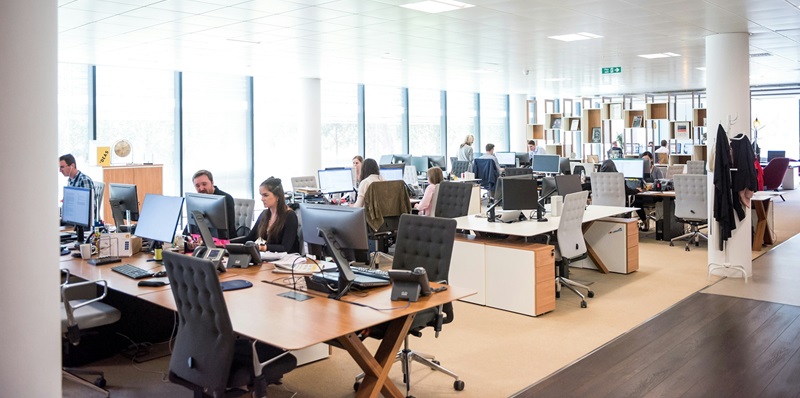In recent times, the debate surrounding return-to-office (RTO) policies has gained significant attention. Employers are grappling with the decision of whether to bring their employees back to the office or continue with remote work arrangements. However, this push for returning to the office raises important questions about trust in the workplace. Are RTO policies primarily driven by a belief in the value of in-person collaboration, or are they fueled by fear that employees will slack off unless constantly monitored?
The motivation behind RTO policies
One of the key factors influencing the decision to implement remote work policies is the belief in the power of in-person collaboration. Many employers argue that face-to-face interactions enable more robust brainstorming, creativity, and problem-solving. However, concerns about productivity and a lack of control over remote employees have also driven the push for remote work policies. The fear that employees may slack off when not under the watchful eye of managers can lead to a preference for in-person work arrangements.
The importance of trust in the employer-employee relationship
Trust is fundamental to the employer-employee relationship. It serves as the cornerstone of a productive and positive work environment. Employees need to feel that their employers trust them to deliver results, regardless of their physical location. When trust exists, it fosters higher levels of morale, engagement, and productivity. Conversely, a lack of trust can undermine these aspects and have a detrimental effect on the overall functioning of the organization.
The consequences of a lack of trust
When employees perceive a lack of trust from their employers, it can have far-reaching consequences. Decreased morale and engagement are common outcomes, as employees may feel undervalued and unappreciated. As a result, their motivation to perform at their best diminishes. Furthermore, a lack of trust can lead to decreased productivity, as employees may become disengaged and less committed to their work. Ultimately, workers who feel distrusted may seek employment elsewhere, where their autonomy and professionalism are respected.
The impact on innovation and creativity
A culture that implicitly suggests that employees are only productive under direct supervision can stifle innovation and creativity. Creating an environment that fosters trust is essential for encouraging employees to think outside the box, take risks, and contribute their unique ideas. When employees feel trusted, they are more likely to share their perspectives, collaborate, and offer their innovative insights. Trust empowers employees to bring their whole selves to work and unlocks the full potential of their creativity.
The disconnect between management and staff
Insisting on Return to Office (RTO) policies in the face of widespread employee preference for remote work can lead to a disconnect between management and staff. Employers must consider the desires and needs of their workforce to maintain effective communication and collaboration. Ignoring employee preferences can breed frustration, diminish employee satisfaction, and create a divide within the organization. Open dialogue and flexibility are crucial in bridging the gap between management and staff, ensuring a harmonious work environment.
Building a culture of trust
To maintain a motivated and committed workforce, it is imperative to build a culture of trust within the organization. Employees need to feel valued and respected, regardless of their physical location. Trust is built through transparent communication, empowerment, and recognition of employees’ contributions. Employers must provide clear expectations, foster open lines of communication, and demonstrate trust in their employees’ ability to fulfill their responsibilities. When employees feel trusted, they are more likely to remain loyal and dedicated to the organization’s goals and objectives.
Retaining top talent and fostering a positive work environment
Employers who recognize and address trust issues will be better positioned to retain top talent and foster a positive work environment. Trust is closely tied to job satisfaction and employee loyalty. By prioritizing trust, organizations can create an atmosphere where employees feel valued, supported, and able to perform optimally. This not only leads to higher productivity but also attracts and retains talented individuals who seek an environment that promotes growth, collaboration, and trust.
In navigating the decision to implement return-to-office policies, employers must consider the larger issue of trust in the workplace. Trust serves as the foundation for a productive and positive work environment, impacting employee morale, engagement, and productivity. Return-to-office policies driven solely by a lack of trust can have detrimental consequences and hinder innovation and creativity in the long run. By building a culture of trust, employers can better retain top talent and foster a work environment that enables employees to thrive, regardless of their physical location. Embracing trust as a guiding principle leads to a successful and harmonious workplace.

